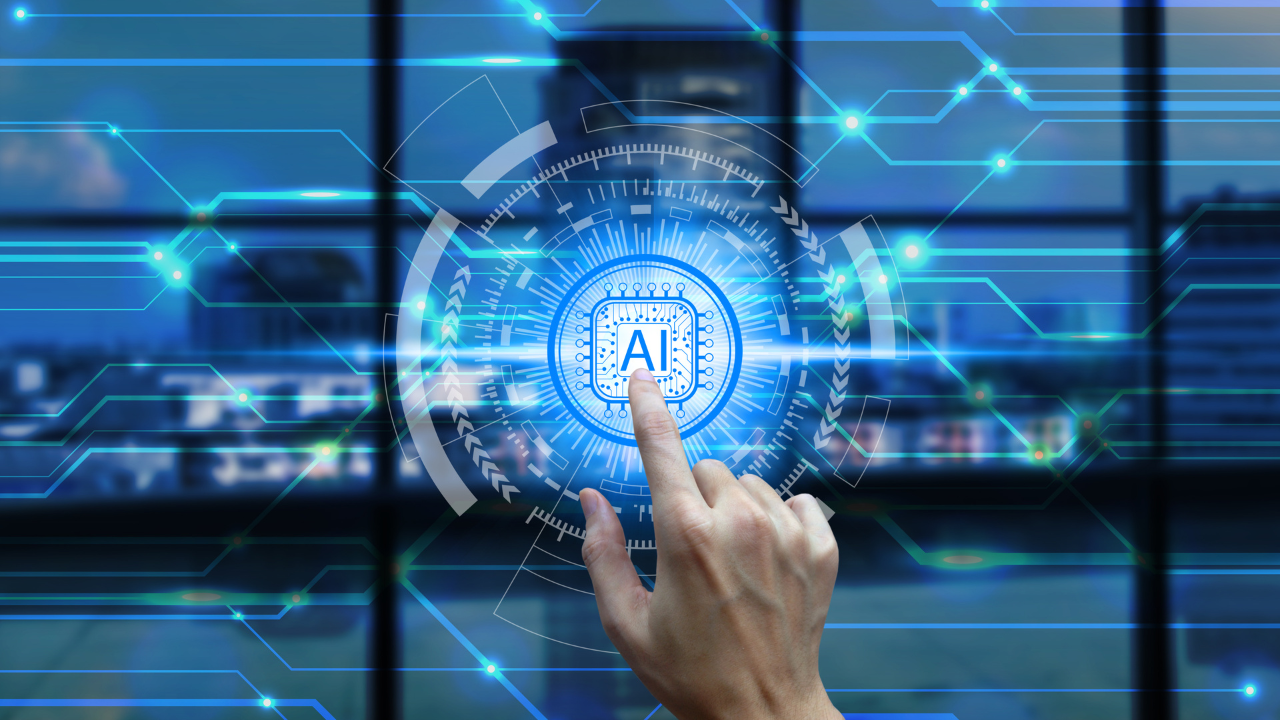Artificial Intelligence Transforming Global Industries
Artificial intelligence (AI) is the ability of a machine to exhibit human-like abilities, such as thinking, learning, and creativity.

Use our pragmatic how-to guide to maximize artificial intelligence. Investigate how AI affects many different sectors.
83% of top American business executives in 2017 lacked knowledge about artificial intelligence (AI). PriceWaterhouseCoopers claims, however, by 2030 AI may increase world GDP by $15.7 trillion. In banking, national security, healthcare, and transportation, this major transformation is in progress.
In many respects, AI is revolutionizing our lives. In banking, national security, healthcare, and transportation, it finds use. AI improves medical diagnosis, analyzes data, and helps detect fraud, for instance.
The United States' investments in AI in the financial sector have surged greatly. They tripled to $12.2 billion from 2013 to 2014. Now displaying its great importance, AI is making judgments in stock markets.
Key in transportation are artificial intelligence and machine learning. To rapidly process volumes of data, they need fast computers and clever algorithms. AI is therefore rather crucial in modern sectors for this reason.
Knowing artificial intelligence goes beyond the buzzwords.
Since its first chess match, AI has evolved greatly. These days, it finds application in various spheres like education, economics, and medicine. This table lists various AI applications:
| Industry | AI Application |
|---|---|
| Healthcare | Disease diagnosis, patient data analysis |
| Finance | Stock market prediction, risk analysis |
| Education | Personalized learning, student assessment |
Deep learning depends on neural networks, which enable AI systems to learn from plenty of amounts of data. Natural language processing allows us to converse with robots in our tongue. AI is here to stay because the industry is predicted to reach $390.9 billion by 2025.
The revolutionary influence of artificial intelligence in several spheres of industry
Among numerous corporate sectors, including banking, healthcare, and transportation, AI is transforming Its accuracy and efficiency depend on robots and computer vision, which also help to For instance, robots increase production productivity; computer vision enables physicians to make more accurate diagnoses.
Many advantages AI offers companies include:
- AI enhances accuracy and efficiency.
- Improved client experience.
- More output.
- Improved decision-making.
According to studies, AI is significantly influencing corporate sectors. Businesses such as Deloitte and McKinsey use AI to better assist their customers. Computer vision and robotics are growing more and more prevalent and most certainly will expand.
The position of AI in business is about to shift greatly. It allows businesses to better service clients, increase accuracy, and automate chores. As AI advances, robots and computer vision will find increasingly more fascinating applications in industry.
Necessary Instruments and Tools for artificial intelligence Application
Investigating AI reveals many tools and platforms. Fast expanding and providing answers for many sectors and requirements, the AI area is From cloud-based solutions to open-source architectures to corporate systems, the alternatives are very broad.
Recent statistics reveal varying expenses of AI platforms. For basic programs, they may start at $10 per user monthly. For top enterprise-level systems, expenses might go beyond $1000 per user monthly.
The implementation of artificial intelligence depends much on data science. It reduces hand labor by automating chores, therefore accelerating work. This increases efficacy. Popular open-source and free AI tools include PyTorch and TensorFlow.
For companies, BigML and H2O.ai provide reasonable solutions. These systems assist with AI chores without breaking the budget.
Companies may choose from many AI pricing schemes. These include freemium, pay-as-you-go, and subscription-based approaches. These scalable and versatile solutions match many corporate demands.
Artificial intelligence systems assist companies in handling vast data collections. They provide scalability and develop with the company. Keeping current with fresh tools and platforms is very vital as AI develops. This process facilitates companies using data science and AI for expansion.
Creating Your artificial intelligence Strategy: An Applied Methodology
Beginning your AI path calls for a clear strategy. According to research, an effective artificial intelligence plan is pragmatic. It employs deep learning and machine learning and corresponds with your company objectives.
A solid AI plan functions as your company's roadmap for using AI. One should be aware of the strength and size of your IT staff. You could decide to run AI on your systems or on someone else's. Companies like IBM Consulting let large corporations better employ AI and cloud computing.
Aim to stand out, increase AI utilization, and establish AI trust if you are developing a great AI plan. Based on their cost and performance, consider tools, suppliers, and partners. Furthermore, the success of AI depends on having a data management strategy. Staying competitive and maximizing AI depend on your concentration on them.
Managing the Integration of artificial intelligence
Companies beginning their AI path must negotiate the integration process effectively. There are many phases to this path: planning, testing, and scaling. Natural language processing increases efficiency and production by helping AI be included in sectors such as customer service and healthcare.
Examining the company's setup and discovering AI applications comes first. For AI to operate well, one must have a strong strategy and high quality of data.
The firm then implements the AI solution and evaluates its performance. This phase includes teaching personnel fresh AI responsibilities.
Following the AI setup, the business monitors its performance. The process might include changing the AI model or upgrading systems to satisfy business objectives.
Using AI and following these guidelines can help businesses seamlessly include AI. Better efficiency, output, and customer delight follow from this.
Overcoming Typical Problems in artificial intelligence Implementation
Starting their AI path, companies can encounter shared challenges. Two main concerns mentioned in a study are a shortage of qualified personnel and data quality problems. One finds answers in robotics and computer vision. For manufacturing, for instance, robots improve data quality; computer vision improves healthcare diagnosis.
Common challenges include bad data, a dearth of IT expertise, and expensive AI tools. Key for addressing them are a gradual AI investment, staff training, and a strong data governance strategy. These actions guarantee AI success, hence improving accuracy, efficiency, and decision-making as well as ensuring the success of AI.
Computer vision and robotics may assist in addressing certain artificial intelligence obstacles:
- Robotic data quality enhancement in manufacturing.
- Improving diagnosis accuracy in healthcare by means of computer vision.
- Robotic task automation helps to lower handmade mistakes.
- Using computer vision to improve data analysis helps one to get understanding.
Using robots and computer vision can help companies overcome challenges related to AI application. The correct approach and plan release the full possibilities of AI. This fuels innovation and corporate expansion.
| Challenge | Solution |
|---|---|
| Poor data quality | Implement comprehensive data governance strategy |
| Lack of skilled IT professionals | Invest in employee training and development |
| High initial costs | Adopt phased investment approach |
Calculating ROI and Success Measures for AI Initiatives
Companies funding artificial intelligence (AI) must regularly monitor their success measures and return on investment (ROI). Industries like manufacturing and healthcare may be greatly impacted by AI. One must grasp how well these initiatives turn out.
Checking the effectiveness of AI projects depends critically on data science. Examining key performance indicators (KPIs) aids in this. These include consumer happiness, the degree of issue solving, and the cost of every contact.
Recent research indicates that AI initiatives may pay off handsomely. For instance, according to Deloitte research, 74% of businesses saw significant improvements in customer service and experience. Companies examine elements like equipment downtime, maintenance expenses, and manufacturing quality to determine if AI initiatives live.
Customer service, IT operations, planning, and decision-making may all benefit greatly from AI. Using data science and AI helps businesses make better decisions, operate more effectively, and enhance customer service. Companies should be following fresh trends and innovations as artificial intelligence continues improving.
Future-Proofing Your AI Application
Many sectors are being transformed by artificial intelligence, so it is essential to stay current with it. According to research, you should be aware of fresh developments and technology like machine learning and neural networks. These are improving companies' risk management and customer service abilities.
Among the fresh developments and technologies worth monitoring are
- More machine learning is used in consumer service and marketing.
- In risk management and finance, deep learning.
- Neural networks for challenging tasks.
Businesses should examine their AI regularly, engage in training, and work with AI tech suppliers if they want to stay current. They may keep ahead and thrive for a long period.
Conclusion
Industries all around are being transformed by artificial intelligence. Businesses using this technology may flourish and develop as never seen before. By use of robots and computer vision, they can improve performance, reduce errors, and make wiser decisions.
One excellent model is Microsoft. Their approach now heavily relies on AI. They have also formed alliances in search of fresh revenue sources. Boardy AI's five P Framework enables teams to collaborate more effectively, therefore fostering long-lasting transformation. AI tackles major water issues by helping create better wastewater solutions and monitoring water quality from space.
It's time to begin using AI, as the industry is expected to reach over $190 billion by 2025. Businesses may expand and evolve for years to come by using AI in a fair and beneficial manner for society.



